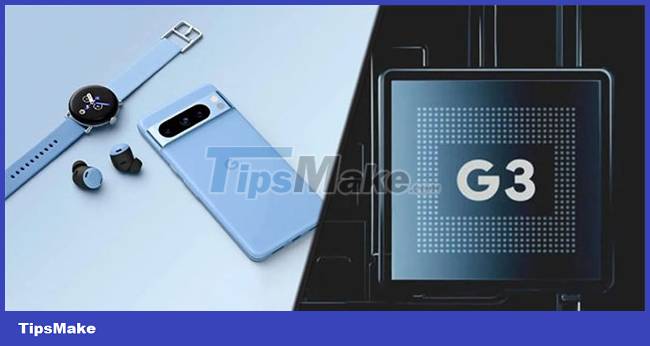Google Tensor G3 is the world's first smartphone processor to support AV1 encoding at 4K 60FPS
However, Google's chip has just received a lot of praise for adding utility support that no other smartphone SoC on the market today can: Encryption AV1 (AV1 Codec) at 4K 60FPS resolution. Of course, there will still be a few disadvantages to mention.
AV1 is a video codec developed by the Alliance for Open Media that aims to reduce file size after compression without affecting quality. The AV1 codec essentially helps deliver better video quality for the same file size. Likewise if given the same resolution, AV1 will significantly reduce file size. Another benefit is that this codec is 30% more efficient than the current H.265 codec, making it extremely useful for streaming content, especially as major platforms like Netflix and YouTube both already supports AV1.
In addition, because AV1 possesses the ability to support effective hardware acceleration instead of relying on software as usual, it also contributes to reducing battery usage on mobile devices, along with a number of other benefits. Today, AV1 has become a new standard in fields related to graphics processing.
If you compare the current crop of high-end Android smartphone chipsets including Snapdragon 8 Gen 3, Dimensity 9300 and Exynos 2400, none of them support hardware-accelerated AV1 encoding at 4K 60FPS like Tensor G3. Apple A17 Pro also only supports AV1 decoding, not encoding.

However, considering the actual application, the competitive advantage Tensor G3 gains through the above capabilities is not really obvious because at the present time, there are extremely few applications that support AV1 encoding at 4K. 60FPS. Furthermore, the Pixel 8 and Pixel 8 Pro's default camera app - Pixel Camera - also does not support the advanced AV1 encoding option, making the Tensor G3's ability to handle 4K 60FPS AV1 encoding go to waste.
In fact, one of the reasons why smartphone chipset manufacturers have not been keen on switching to AV1 encoding and staying at H.264 is because of the wide compatibility. Google may bring similar features to Tensor G4 released later this year. But at the same time, to further take advantage of this, the company should also support port compatibility, at least for the Pixel Camera, so that Pixel 9 and Pixel 9 Pro owners can take advantage of this capability. .